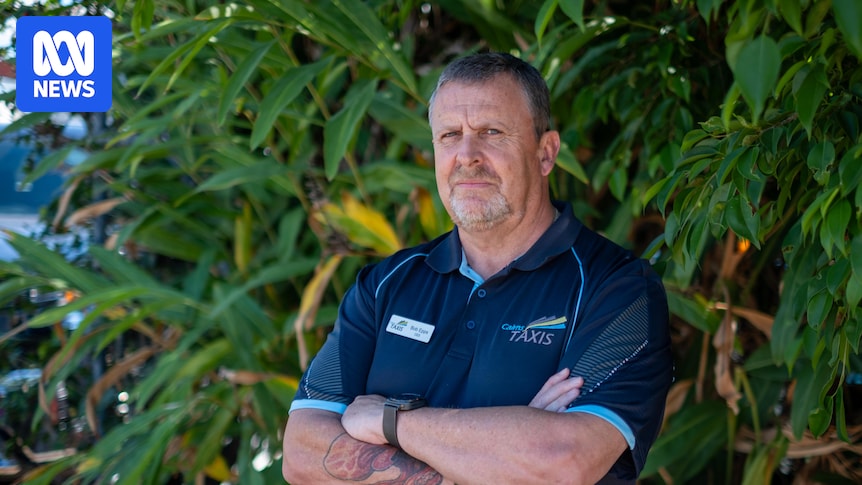Bob Epps was at the peak of his career in senior management when he was unexpectedly made redundant in his mid-50s.
The now 63-year-old picked up some contract work, but repeated rejection left a bitter taste as he tried to land a permanent position.
“I would have applied for over 100 jobs in that C-suite, senior sort of GM and upwards level roles and I didn’t even get one interview,” he said.
“I felt gutted.”
His experience is borne out in new data that paints a bleak picture for job-hunters aged over 50.
One quarter of employers classify over 50s as ‘older’
A new report, jointly produced by the Australian Human Rights Commission and the Australian Human Resources Institute, found almost one quarter of HR professionals now classify workers aged 51 to 55 as “older”.
Just two years ago, only 10 per cent of recruiters took that view, suggesting many employers are sidelining experienced professionals in an economy suffering skills shortages.
The report, Older and Young Workers: What do Employers Think? is the fifth national survey of employers and HR professionals.
The report surveyed 138 employers across Australia, providing a snapshot of how workers were perceived, supported and included in Australian workplaces.
Age Discrimination Commissioner Robert Fitzgerald. (ABC News: Billy Cooper)
Robert Fitzgerald, Australia’s Age Discrimination Commissioner, who is a former Productivity Commissioner, said the country must acknowledge it is an aging society and embrace employing older workers.
Call for manual labourers to access pension earlier
“The tragedy is so many employers still have biases and stereotypes, make recruitment decisions based on age and there is an in-built prejudice,” he said.
“We won’t solve the productivity problem that Australia has [unless] we increase the labour force participation rate significantly.
“This is now an economic and social imperative for the nation.”
The commissioner said the AHRC had received hundreds of complaints in relation to the Age Discrimination Act, mainly concerning age being used in employment and recruitment decisions, including workplace harassment aimed at encouraging retirement.
The report titled Older and Young Workers: What do Employers Think? surveyed 138 employers across the country. (ABC News: Billy Cooper)
Sarah McCann-Bartlett, chief executive of the Australian Human Resources Institute (AHRI) said the report found many employers were reluctant to hire workers under 24 or over 50, which restricted their access to valuable skills and experience.
“There is a very strong message that if we want to lift productivity in Australia, we do need to make better use of the talent that’s out there and this means that we should be focusing on hiring on skills, not on assumptions around age and trying to keep experience in the workforce,” she said.
The report made 18 recommendations in recruitment, training, workplace inclusivity, health and wellbeing initiatives.
These include calls for age-neutral job advertisements, audits of AI resume screeners for biases, and career-transition support for mid to late career employees.
Workers need to modernise resumes, says career coach
Leah Lambart, a career and interview coach, has clients in their 40s, who are already anticipating job search difficulties due to their age.
“Years ago, I would get people calling who were worried about turning 60 and now they’re calling saying, you know, ‘I’m late 40s and I really need to get the next role because I don’t want to be job searching in my 50s’,” she said.
Leah Lambart notes that clients as young as their late 40s are already internalising the perception that they are old and anticipate job search difficulties due to age. (Supplied)
While overt discrimination is rare, Ms Lambart has tips for those over 50, including modernising resumes, having a professional online presence and upskilling in technology.
“Sometimes candidates will say to me, ‘I’m being discriminated against my age,’ but when I look at their resume, it looks like something out of the ’70s and is 10-pages long,” she said.
“They don’t need to include every job they’ve held since they were 20.”
Unemployment rate rises to 4.3pc in June
Nicole Gorton, director at recruitment agency Robert Half, believes the perception of “older workers” by those hiring is largely driven by assumptions about technology adoption.
“When I am speaking to organisations and hiring managers, they have a strong appetite for digital fluency,” she said.
“The adoption of technology, the adoption of AI, and when you haven’t grown up with it and you have to learn it… there is a perception that the older, more experienced worker has not got some of those skill sets.”
Women experience unique biases
Lisa Annese, CEO of Chief Executive Women, said she was genuinely surprised by the shifting perception of hirers.
Ms Annese said it would have been helpful if the report included gender-specific data, noting women’s experiences and unique biases relating to perimenopause, menopause and caring responsibilities.
Lisa Annese finds it unfortunate that age-based biases impact women during what should be their career “sweet spot”. (Supplied)
She said women aged in their 50s, were often in a “sweet spot” for progression.
“It can be a liberating time in women’s lives to really pursue their career,” she said.
“You often talk about women saying this is ‘my time’ now and that could still be [aged in their 50s] what I would consider quite a young age.”
For Bob Epps he has now settled into a chief executive role leading a taxi service in Cairns, proving he’s still got some mileage left.
